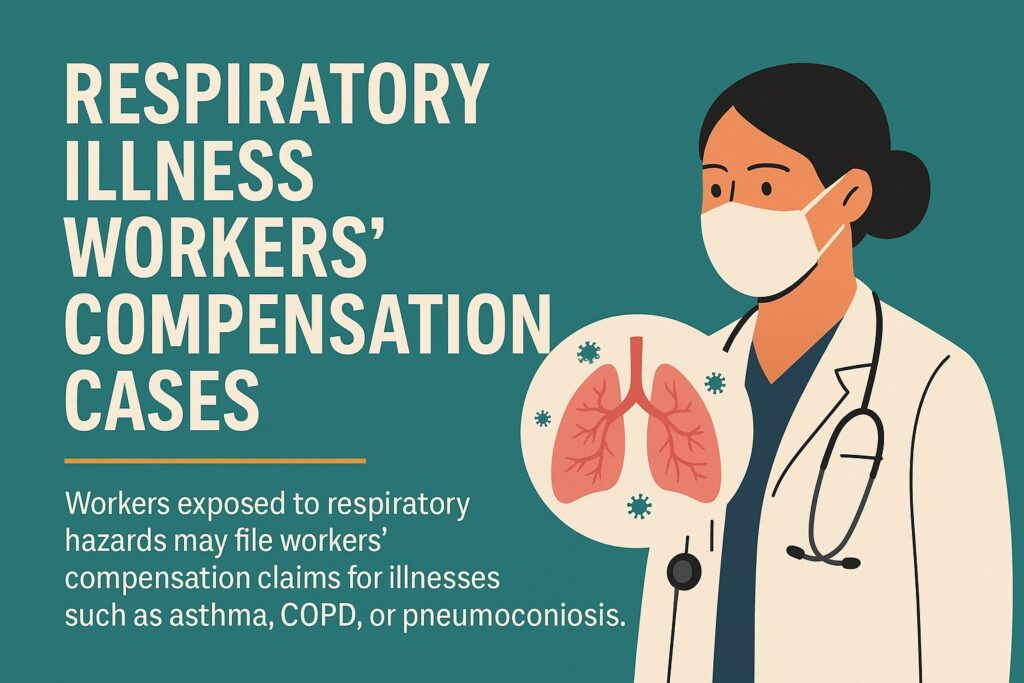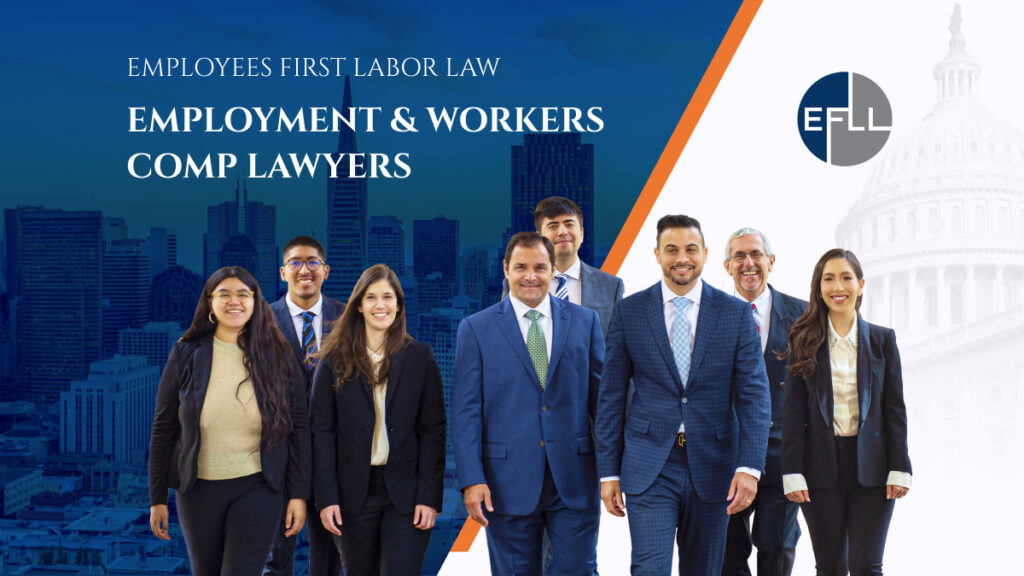
Your ability to breathe should never be compromised by your job. Yet thousands of California workers develop chronic or acute respiratory illnesses due to occupational exposure to harmful substances like dust, fumes, chemicals, or airborne pathogens.
If your lungs are suffering because of where you work, you may be entitled to workers’ compensation benefits under California law. However, getting your claim accepted—and obtaining full and fair compensation—isn’t always straightforward. Here’s what you need to know.
Common Work-Related Respiratory Conditions
Many workers don’t realize their breathing problems are work-related until it’s too late. Below are common respiratory illnesses frequently linked to job exposure:
| Condition | Common Workplace Causes |
|---|---|
| Occupational Asthma | Exposure to dust, cleaning agents, pesticides, paint fumes, flour (in bakeries), or animal dander |
| Chronic Obstructive Pulmonary Disease (COPD) | Long-term exposure to welding fumes, chemical vapors, or particulate matter |
| Bronchitis or Reactive Airways Dysfunction Syndrome (RADS) | Inhalation of irritants or sudden toxic exposures |
| Pneumoconiosis (e.g., silicosis, asbestosis) | Inhalation of mineral dusts like asbestos, silica, or coal dust |
| COVID-19 and Long COVID | Exposure to infected individuals, especially in healthcare, custodial, or retail roles |
| Hypersensitivity Pneumonitis | Organic dust exposure in agriculture, moldy buildings, or manufacturing |
| Lung Cancer | Long-term exposure to carcinogens like diesel exhaust, asbestos, radon, or secondhand smoke |
Even short-term exposures—especially those involving a sudden chemical spill or viral outbreak—can cause lasting harm.
Proving Your Illness Is Work-Related
Under California Labor Code § 3202.5, the burden is on the injured worker to show, by a preponderance of the evidence, that their injury or illness arose out of and occurred in the course of employment (“AOE/COE”).
To meet this standard, you’ll often need:
- A Qualified Medical Evaluation (QME) or Agreed Medical Examiner (AME) opinion tying your respiratory condition to your job.
- Detailed exposure history, including job duties, duration of exposure, and the type of substances encountered.
- Witness statements, incident reports, or OSHA violations documenting unsafe air quality.
- Medical records showing no significant non-industrial causes or aggravating factors.
If your condition developed gradually over time, it’s essential to show cumulative exposure. If it stemmed from a sudden incident (e.g., chemical spill), timely reporting is key.
Presumptions in Favor of Certain Workers
Under specific laws—like SB 1159 and SB 632—some frontline workers may be entitled to a presumption that their respiratory illness is work-related. These include:
- Healthcare workers and emergency responders exposed to COVID-19 during declared states of emergency.
- Hospital workers under proposed SB 632, who would benefit from presumptions for asthma, COVID-19, cancer, PTSD, and musculoskeletal injuries.
- Firefighters and peace officers, who already enjoy presumptions for certain respiratory diseases and cancers.
These presumptions shift the burden to the employer or insurer to prove that the illness wasn’t caused by work.
Benefits You May Be Entitled To
If your respiratory illness is accepted under workers’ comp, you may be eligible for:
1. Medical Treatment
Covers reasonable and necessary care, including:
- Pulmonary rehab
- Respiratory therapy
- Medications (inhalers, steroids, antivirals)
- Surgical intervention
- Sleep studies or oxygen therapy
2. Temporary Disability (TD)
You’re entitled to wage replacement if your doctor says you can’t work. TD pays:
- 2/3 of your average weekly wages (subject to state caps)
- Up to 104 weeks within five years
3. Permanent Disability (PD)
If your condition causes lasting limitations (e.g., reduced lung capacity), you may receive PD benefits based on your Whole Person Impairment (WPI) rating.
4. Supplemental Job Displacement Voucher
If your employer cannot accommodate work restrictions, you may be entitled to a voucher for retraining.
5. Death Benefits
Survivors may be eligible if the worker dies due to a compensable respiratory condition.
Common Employer & Insurer Tactics
Insurance companies often deny or delay claims by asserting:
- The condition is due to smoking, allergies, or non-occupational exposures.
- The worker has preexisting asthma or COPD.
- The workplace exposure was minimal or non-existent.
They may also delay authorizing tests like pulmonary function studies or deny referrals to specialists. These tactics can worsen your condition and complicate your recovery.
Real-World Examples
- Warehouse Worker with Asthma: Exposed to diesel exhaust and dust. Insurer denied the claim, but EFLL secured medical reports and co-worker affidavits confirming unsafe air conditions. Client received PD award and future medical care.
- Nurse with Long COVID: Treated multiple COVID-positive patients without adequate PPE. Initially denied. With QME support and COVID-19 presumption laws, we won full benefits and protected her job.
You Deserve to Breathe Freely—And Be Compensated Fairly
At Employees First Labor Law, we help injured workers take on the system. If you’re suffering from a respiratory illness caused or worsened by work, we’ll fight for your full and fair compensation.
We know how to deal with:
- Difficult medical causation issues
- Denials based on preexisting conditions
- Biased QME evaluations
- Delays in treatment and benefits
Talk to a California Workers’ Comp Lawyer for Respiratory Claims

We’re not just lawyers—we’re advocates for California’s working class. Let us help you stand up to insurers who put profits over your health.
📞 Call now for a free case evaluation.
You focus on healing. We’ll handle the rest.



